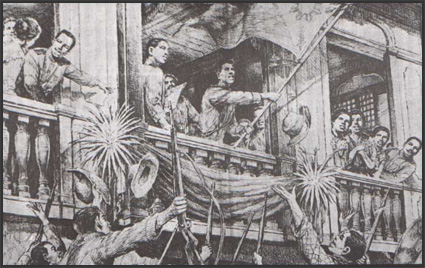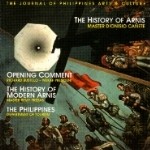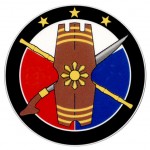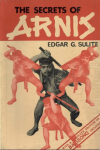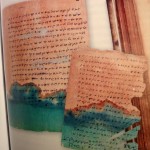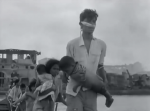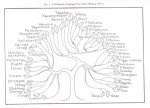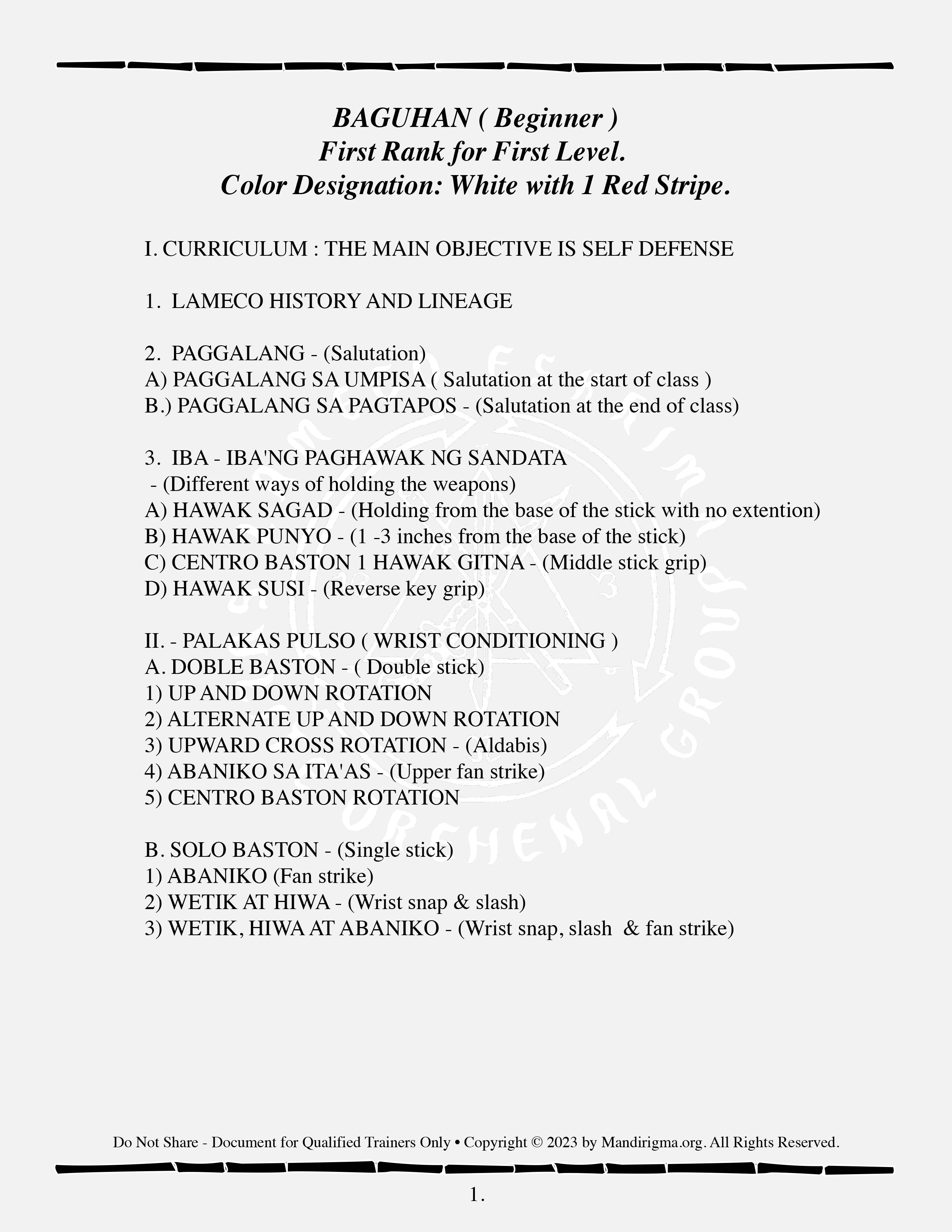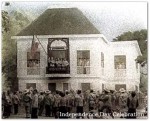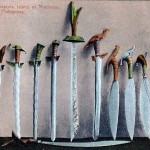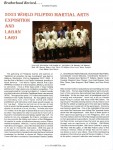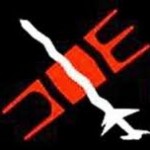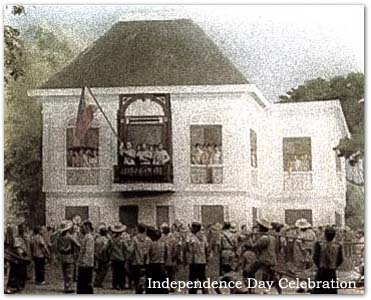
June 12 as Independence Day
by Diosdado Macapagal
Former President of the Philippines
“A nation is born into freedom on the day when such a people, moulded into a nation by a process of cultural evolution and sense of oneness born of common struggle and suffering, announces to the world that it asserts its natural right to liberty and is ready to defend it with blood, life, and honor.”
The promotion of a healthy nationalism is part of the responsibility of the leaders of newly independent nations. After they lay the foundation for economic development, they promote nationalism and spur the search for national identity. This we can do by honoring our distinguished forebears and notable periods in our history. A step we took in this direction was to change the date for the commemoration of Philippine Independence day.
When I was a congressman, I formed the opinion that July 4 was not the proper independence day for Filipinos and should be changed to June 12– the date General Emilio Aguinaldo proclaimed the independence of the Filipinos in Kawit, Cavite, in 1898.
Having served in the foreign service, I noted that the celebration of a common independence day with the United States on July 4 caused considerable inconvenience. The American celebration dwarfed that of the Philippines. As if to compound the irony, July 4 seemed tantamount to the celebration of Philippine subjection to and dependence on the United States which served to perpetuate unpleasant memories.
I felt, too, that July 4 was not inspiring enough for the Filipino youth since it recalled mostly the peaceful independence missions to the United States. The celebration of independence day on June 12, on the other hand, would be a greater inspiration to the youth who would consequently recall the heroes of the revolution against Spain and their acts of sublime heroism and martyrdom. These acts compare favorably with those of the heroes of other nations.
In checking the reaction to my plan to shift independence day to June 12, I found that there was virtual unanimity on the desirability of transferring the celebration from July 4. Likewise, there was a preponderant view for choosing June 12 as the proper day.
A few suggested January 21, the opening day of the Malolos Congress in 1899, or January 23, when the Malolos Congress, ratifying the independence proclamation of June 12, established a republican system of government. The reason for this view was that the government temporarily by Aguinaldo when he proclaimed independence on June 12 was a dictatorship.
There was no difficulty in adhering to June 12, however, because although Aguinaldo Government was a dictatorship in view of the military operations he was then leading, he led in converting it into a republican Government in the Malolos Congress. Moreover, the celebration of independence refers to its proclamation rather than to the final establishment of the government. In the case of America, when independence was proclaimed on July 4, the American Government was still a confederation and it was much later when it finally became a federal government.
The historical fact was that the Filipinos proclaimed their independence from foreign rule on June 12. Even the national anthem and the Filipino flag which are essential features in the birth of a nation were played and displayed respectively at the independence proclamation in Kawit.
When I became President, I knew that this was the opportunity to take action on what had been in my mind since entering public life. The specific question was when to make the change.
The opportunity came when the US House of Representatives rejected the $73 million additional war payment bill on May 9, 1962. There was indignation among the Filipinos. There was a loss of American good will in the Philippines, although this was restored later by the reconsideration of the action of the US lower chamber. At this time, a state visit in the United States had been scheduled for Mrs. Macapagal and me on the initiative and invitation of President John F. Kennedy. Unable to resist the pressure of public opinion, I was constrained to obtain the agreement of Kennedy to defer the state visit for another time.
To postpone the state visit, I wrote a letter on May 14, 1962, to Kennedy, which read in part as follows:
The feeling of resentment among our people and the attitude of the US Congress negate the atmosphere of good will upon which my state visit to your country was predicated. Our people would never understand how, in the circumstances now obtaining, I could go to the United States and in all honesty affirm that I bear their message of good will. It is with deep regret theredore that I am constrained to ask you to agree to the postponement of my visit to a more auspicious time.
On May 28, 1962, Kennedy wrote me explaining the situation on the war damage bill. His letter stated:
In the meantime, I must respect your decision that your visit to the United States should be postponed. We do not want your visit to be less than first class, when it comes. But I do hope that we will be able to find another convenient time.
I decided to effect the change of independence day at that time not as an act of resentment but as a judicious choice of timing for the taking of an action which had previously been decided upon.
I called Press Secretary Rufino Hechanova to consult him on my contemplated action. I asked him outright what he thought of my step if I should move the celebration of independence day from July 4 to June 12.
Hechanova winced and said: “Please Mr. President, don’t act on that yet. Let us give it a thorough study. I am flying to Iloilo today and on my return on Monday I will come to discuss it with you.”
After his departure, I called in Legal Adviser Juan Cancio. “Johnny,” I asked, “Do I have the power to change independence day from July 4 to June 12?” Cancio readily answered: “Yes, sir, because July 4 is being celebrated as independence day not because it is so specifically designated by law but as an official holiday. Since the President has the authority to declare official holidays, you may declare June 12 as a holiday and hold an independence celebration on that day.”
I immediately directed Cancio to prepare the proclamation, revised and signed it, and asked him to release it to the press through the Malacañang press office. On May 17, 1962, I certified as urgent to the Congress the enactment of a measure to fix June 12 statutorily as independence day.
The change was justified by the successful celebration. General Emilio Aguinaldo was the guest of honor. At least one million people attended whereas in previous celebrations on July 4, only from two to three hundred thousand came.
Bespeaking of the nobility of the American people, President Kennedy was among the first to extend the congratulations of the United States to the Filipino people in celebrating their freedom on June 12, 1962. In a message to me, he said:
It is with pleasure that I join the people of the United States in extending our best wishes and warmest congratulations to Your Excellency and the people of the Republic of the Philippines on the occasion of the Philippine Independence Day.
A letter of thanks in Spanish was also sent to me by General Aguinaldo on May 19, 1962. A translation of the letter reads in part as follows:
I cannot but send you this letter to express the most profound gratitude for the proclamation which Your Excellency has recently issued naming June 12 as independence day– the date when we announced to the whole world that we were a free and independent nation. I who took an active if modest part in the effort of our people to break the colonial yoke we were subjected to, feel joy and pride over the patriotic act which Your Excellency has just performed.
In my address on the first June 12 as independence day celebration, I said:
In the discharge of my responsibility as President of the Republic, I moved the observance of the anniversary of our independence to this day because a nation is born into freedom on the day when such a people, moulded into a nation by the process of cultural evolution and a sense of oneness born of common struggle and suffering, announces to the world that it asserts its natural right to liberty and is ready to defend it with blood, life, and honor.
While we were seated at the grandstand during the ceremonies, General Aguinaldo thanked me again for the rectification of an erroneous historical practice and then asked: “When will there be an Aguinaldo monument at the Luneta like that of Rizal?” I could not answer the question. The next generation might have the answer.
The following year the same successful celebration was held. The commemoration on the third year was likewise a success.
I noted by this time that Congress had not yet approved a measure to prescribe June 12 as independence day by statute. I followed up the matter with members of the Senate and the House.
Rep. Ramon Mitra Sr. was leading the spade work in the House for the approval of the new independence day measure. The bill was authored by him and Rep. Justiniano Montano. Senator Lorenzo Tañada authored a similar measure in the Senate.
Among those whom I talked to in following up the bill was Senator Gerardo Roxas, son of President Roxas who raised the Filipino flag on July 4, 1946 to mark the independence of the Philippines from American rule and thereby became the first President of the Republic of the Philippines. I thought it possible that Senator Roxas might be lukewarm toward the change of independence day since the historical focus on the first Presidency of the Republic may shift from Roxas to Aguinaldo. My talk with him did not bear out my fear. Roxas informed me that what had delayed the approval of the independence day bill was the desire of some legislators to retain some significance for July 4. In the consideration of the measure, the snag was solved by the provision that with June 12 being declared Independence Day, July 4 shall be known as Republic Day.
Finally, on August 4, 1964, I signed at Malacañang Republic Act No. 4166 statutorily prescribing June 12 as Philippine Independence Day. Special witnesses invited to the signing were children of Presidents, including Carmen Melencio-Aguinaldo, Manuel Quezon Jr., Maria Osmeña-Charnley, Gerardo Roxas, Tomas Quirino, and my sons Arturo and Diosdado Jr.
(Thanks to the Philippine Consulate General in Los Angeles for making this document available.)
To cite:
Macapagal, Diosdado. “June 12 as Independence Day” in Hector Santos, ed., Philippine Centennial Series; at http://www.bibingka.com/phg/documents/whyjun12.htm. US, 30 April 1997.9
